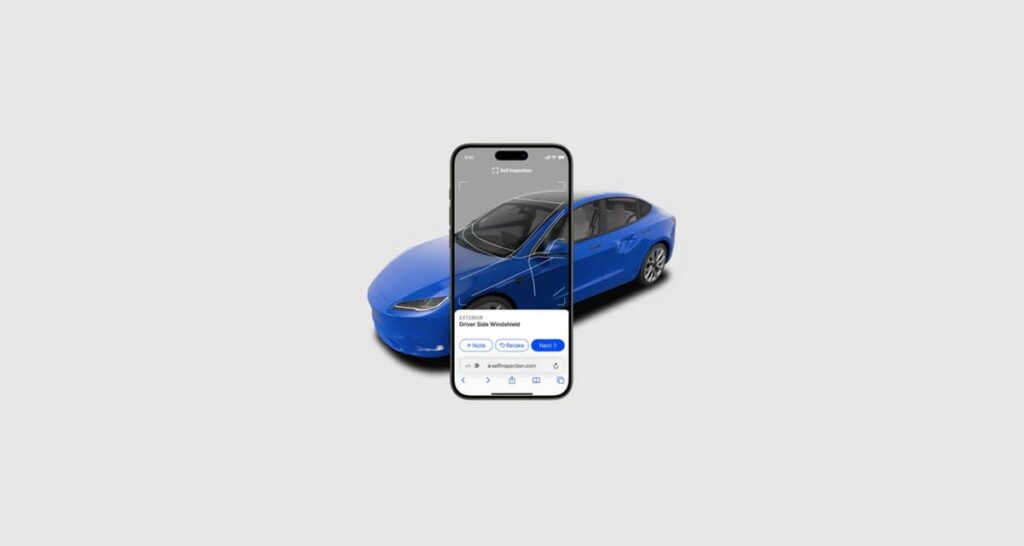Several startups are in a race to revolutionize vehicle inspections, making them faster, more accessible, and cost-effective. Among them, San Diego-based startup Self Inspection believes it has the upper hand with its AI-powered solution—and now, it has secured the backing of investors.
Founded in 2021, Self Inspection is set to announce on Thursday that it has raised $3 million in a seed funding round co-led by Costanoa Ventures and DVx Ventures, the firm led by former Tesla president Jon McNeill. Also participating in the round is Westlake Financial, a company that facilitates over one million vehicle transactions annually.
According to Karim Bousta, partner at DVx Ventures, the traditional vehicle inspection process is overdue for innovation. He believes Self Inspection’s technology not only optimizes operations for auto lenders, dealerships, and rental companies but also sets a new industry standard for quality, reliability, and a seamless digital experience in the $30 billion vehicle inspection market.
The funding serves as a validation of the technology Self Inspection has been developing over the past few years, CEO Constantine Yaremtso told TechCrunch. The company already counts Avis and CarOffer—a digital wholesale platform owned by CarGurus—among its customers, along with Westlake Financial.
A Different Approach to AI Vehicle Inspections
Unlike UVEye, which recently raised $191 million for its AI-driven drive-through inspection technology, Self Inspection takes a different approach. Instead of requiring specialized hardware, it only needs a smartphone camera—though its software can also integrate data from a car’s OBD2 port for deeper diagnostics.
The company has trained its AI models on one of the largest datasets of damaged vehicles, enabling them to quickly identify damage, assess its severity, and generate repair cost estimates. The result? One of the most comprehensive vehicle inspection reports in the industry.
“What we provide is essentially a detailed PDF report that typically only a body shop would generate,” Yaremtso explained. “It outlines the required repairs, labor costs, necessary parts, and more.”
Customizable and User-Friendly
One key advantage of Self Inspection is its customizable nature, setting it apart from competitors like Ravin. Unlike rigid, one-size-fits-all solutions, Self Inspection’s software allows clients to tailor the process to their needs.
For instance, a fleet operator or vehicle marketplace can use the drag-and-drop interface to prioritize certain high-wear areas, add a step to verify an EV’s charging cable is present, or customize inspection criteria based on specific business needs.
Another standout feature? Ease of use.
Unlike many competing solutions, Self Inspection does not require users to maintain a fixed distance from the vehicle when capturing photos or videos. Even more conveniently, it doesn’t require a standalone app. Instead, the technology integrates seamlessly into customers’ existing workflows. Vehicle inspections are conducted directly through a smartphone web browser, accessed via a simple text message or email link.
“Everyone has a good camera, everyone has a good phone, and everyone knows how to take photos,” Yaremtso said. “As soon as they receive a text or email, the process is intuitive and frictionless.”
By streamlining inspections and eliminating unnecessary steps, Self Inspection is positioning itself as a powerful tool for marketplaces, banks, and lenders—helping them conduct vehicle inspections more efficiently and accelerate the sales cycle.
